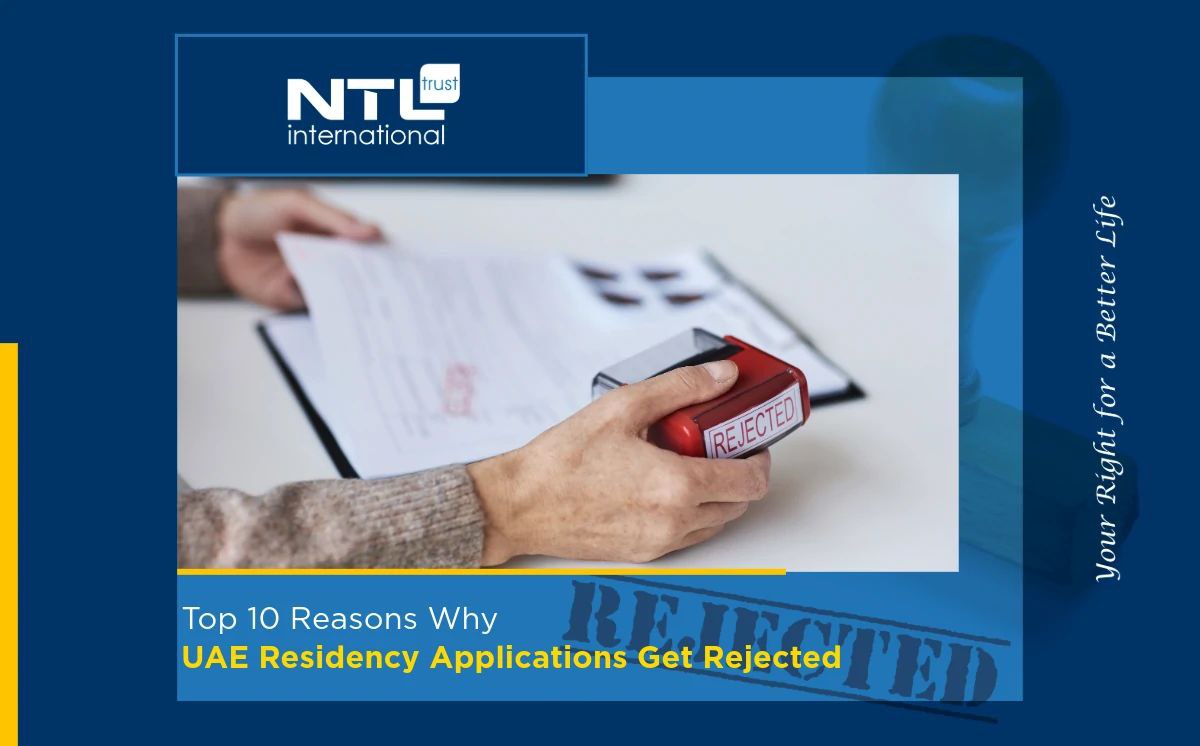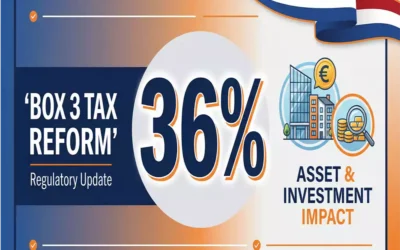
While much of the discussion around UAE residency focuses on the benefits of the Golden Visa and how to obtain it, there’s a lesser-known side: why residency applications may be denied.
The United Arab Emirates is a leading destination for investment due to its attractive economic environment and advanced infrastructure. However, some investors face unexpected rejection of their residency applications. What are the reasons that might prevent investors from securing residency in the UAE?
This article will uncover the main factors that could hinder investors from obtaining residency in this promising country.
10 Reasons Why Residency Applications in the UAE Get Rejected:
Failure to Provide Necessary Documents:
Investors are typically required to submit a set of documents, including company records, financial statements, and proof of income. Incomplete or inaccurate documentation can lead to the rejection of a residency application in the UAE.
Failure to Meet Financial Requirements:
The UAE imposes specific financial conditions on investors, requiring them to demonstrate sufficient financial resources for local market investment. If the intended investment does not meet the required financial thresholds, there’s a high likelihood that the residency application will be denied.
Unclean Business History:
If an investor has a problematic financial history, such as records of bankruptcy or legal disputes, this could lead to the rejection of their residency application. UAE immigration authorities carefully review the business background of investors to ensure that the investment will be active and free of risks.
Non-compliance with Local Laws:
The UAE enforces strict regulations governing business activities. If the type of business the investor intends to pursue does not comply with local laws and regulations, the application may be rejected. Investors must be fully aware of the legal requirements for their planned business activity and associated regulations.
Challenges in Employment:
Many investors are required to hire a certain number of local or foreign employees as part of their business operations. If the proposed company does not meet employment requirements or cannot prove its ability to hire UAE nationals, the residency application may be denied.
Read more: How to Establish a Company in the UAE?
Inability to Maintain Business Sustainability:
The UAE focuses heavily on attracting sustainable investments. If the proposed business model does not guarantee sustainability or presents significant long-term risks, this could be grounds for denying the residency application.
Frequent Changes in Laws and Regulations:
The UAE is a dynamic environment where laws and regulations are updated regularly. Lack of awareness or failure to adapt to these changes may result in the submission of a non-compliant application, leading to rejection. Investors must stay informed of updates to ensure their applications align with the latest regulations.
Suspicious Financial Transactions:
The UAE has strict measures in place to combat money laundering and terrorism financing. Any suspicions or investigations related to an investor’s finances or transactions could result in the rejection of their application due to concerns over financial security.
Intense Competition:
The type of business and the ability to secure residency are closely linked to how competitive the investor can be in the market. If others are applying for the same investment opportunity with stronger business plans, the investor may face difficulties in obtaining residency.
Limited Options in Certain Sectors:
Some sectors, such as fintech or security-sensitive industries, may face more difficulty in securing residency. Therefore, it’s essential to choose the investment sector carefully and understand the specific requirements of each industry.
Can You Appeal a Rejected Residency Application in the UAE?
Yes, investors can appeal a rejected residency application in the UAE. Here are the steps and options available for filing an appeal:
- Contact the Relevant Authority
First, contact the authorities that rejected the application, such as the Immigration Department or the Economic Department, to officially learn the reasons for the rejection. - Submit an Appeal
Investors should submit a written appeal explaining the reasons for contesting the decision, supported by the necessary documents. The appeal should be clear and detailed. - Meet Deadlines
It’s crucial to adhere to the deadlines provided by the relevant authority regarding the appeal period, as there may be a specific time frame that must be respected. - Prepare Supporting Documents
Gather all the documents and records that validate the application, such as financial documents or any information related to the business activity, to demonstrate the validity of the request. - Seek Legal Advice
In some cases, it may be beneficial to consult a lawyer specializing in investment matters to obtain legal advice and properly prepare the documents. - Wait for the Final Decision
After submitting the appeal, the relevant authority will review the case, and a decision on the appeal is usually made within a certain period. Stay updated on the status of the decision. - Additional Options
If the appeal is denied, other options may be available, such as submitting a new application after addressing the reasons for rejection or utilizing mediation or arbitration services if available.
Rejection of a residency application in the UAE can result from a variety of reasons related to compliance with legal and financial requirements, as well as the potential success and growth of the proposed business. Investors must have a thorough understanding of the UAE’s business landscape and prepare their applications carefully by ensuring that all requirements are met. Legal and investment consultations are essential to ensure the success of the application and avoid potential reasons for rejection.
CBI Due Diligence Process for Second Citizenship 2026
CBI Due Diligence Process for Second Citizenship 2026 | NTL International alt="CBI due diligence process for second citizenship application - NTL compliance advisory" width="1400" height="788" loading="eager" Compliance Guide CBI Due Diligence Process for Second...
Top Citizenship by investment Programs in 2026
Top Citizenship by Investment Programs in 2026 | NTL International src="https://ntlinternational.com/wp-content/uploads/2026/02/ntl_top10_cbi__map.webp" alt="World map showing the top citizenship by investment programs ranked by application volume 2026, NTL...





